Dakar is known as the Paris of West Africa, but it’s much more than great food and beautiful fashion. It’s a vibrant city known to make travelers fall in love with its rich tapestry of culture, history, and stunning beaches. Before you begin your journey to this West African gem, here are some essential tips to ensure a smooth and enriching experience.
Hotels
Get the best rates on hotels and private accommodations.
Car Rentals
Renting a car can be easy and stress-free.
Activities
Looking for the best things to do? I’ve got you covered.
Respect Local Customs
As a predominantly Muslim country, wearing modest clothes is a cultural norm in Senegal. What you wear sends lots of silent messages to those around you. Senegalese women are known for being very fashion-forward, so pack many great outfits and consider getting a few tailor-made ones. When venturing out, especially in urban areas, dress modestly by covering your shoulders and wearing attire around your knees. While at the beach, pack cover-ups and avoid thong bikinis out of respect for local norms. However, feel free to express yourself when hitting the clubs or private beaches.
How to Get Around in Dakar: Taxis
The easiest way to get around Dakar is via ride-sharing apps like Yango. Alternatively, hailing a taxi is easy, but be prepared to negotiate fares. Learning phrases like “wanni ko s’il vous plait” (please lower the price) can be handy when bargaining. There are also sept-places for longer journeys. These cars are notoriously uncomfortable. For the best experience, consider buying an extra seat or renting your own vehicle. Other forms of affordable transportation in Dakar are the Dakar Dem Dikk buses or Tatas (white vans). I believe that car rapides, the cars with lots of artwork on the outside, are no longer allowed on the road due to safety concerns. There’s also a clando, similar to the dollar van in Brooklyn. You pay a small fee, and it follows a basic route (usually to a main road), picking up other passengers along the way.
What Language Do They Speak in Senegal?
Senegal is home to more than 30 languages. Wolof is the most commonly spoken language in Dakar, but many people, especially the younger generation, also speak French. Other regions outside of Dakar may speak languages such as Bambara, Fulani, Serer, Jola, etc. Basic knowledge of French and Wolof will significantly enhance your communication during your stay. While major establishments may have English-speaking staff, having a translator or guide can be invaluable, especially in local markets.
Some good phrases to know in French are :
- Bonjour- Hello
- S’il Vous Plait- Please
- Merci- Thank you
- Some good phrases to know in Wolof are:
- Nanga Def-How are you
- Mangi fi- I’m fine
- Jerejeff- Thank you
- Nioko Bokk- You’re welcome
Cultural Etiquette in Senegal: Use Your Left Hand
In many Arab, South Asian, and African countries, people use water to wash themselves after using the bathroom. Usually, they use their left hand. Therefore, it’s a cultural norm to eat with your right hand. This is especially important when you’re eating communally. You also want to use your right hand when exchanging things or paying someone. Some will take offense if you use your left hand. Adhering to this norm shows respect for local customs and avoids unintentional offense.
Cash is King
Carry sufficient cash as many small vendors do not accept cards. Senegal’s currency, the CFA franc, is widely used, particularly in local markets where you can find affordable options for food and souvenirs. I recommend taking large amounts of money out of the ATM at a time because it’s widespread for ATMs to run out of currency or to be out of order for weeks. If you decide to leave Dakar, take out cash because finding ATMs in more rural areas is sometimes impossible.
Vigilance in Markets
Exercise caution in markets to avoid falling victim to scams or pickpocketing. Refrain from following individuals who claim to lead you to their “brother’s” shop, as they may inflate prices for their gain.
Embrace Haggling
Haggling is expected when purchasing art, souvenirs, or taxi fares. However, prices for essential items like produce and street food are typically fixed. An interesting thing to note is that Senegal has some affordable options, but if you want a more luxurious trip, you will pay a premium. An excellent example of that is their most famous dish, Thiebudienne (fish and jollof rice). If you go to a moderate restaurant in the mall, it might cost like 6,000 CFA (12 dollars), but if you were to buy that same dish at a local restaurant, it might be like 1,500 CFA (3 dollars), and there’s so guarantee that the 6000 CFA dish will taste better. Some places offer cheaper plates or Thiebudienne for about 500 CFA (1 dollar), but the hygiene isn’t the same, and the fish quality is much lower.
Best Neighborhoods to Stay in Dakar
Choose accommodations in neighborhoods such as Almadies, Point E, Hann, Ngor, or Ouakam (near the corniche only) for proximity to major attractions. While options in Pikine, Yoff or Oest Foire may be cheaper, consider the additional taxi expenses and traffic congestion. For in depth details read this blog post on the best neighborhoods in Dakar.

Is Senegal Safe?
Senegal is usually pretty safe, but it’s best to be cautious like all countries. Be wary of petty theft, especially in crowded areas. Keep belongings secure and avoid displaying valuables openly. Stay vigilant of motorcycles, a common mode of operation for thieves. Make sure to place your purse on the side not facing the cars and keep the windows of your taxi up when in traffic. Avoid going to wrestling matches by yourself or proceed with lots of caution. I personally got my bag snatched in broad daylight after a wrestling match near my home. The assailant was on foot but was apprehended after I alerted those around me.
How to Get from the Airport to Dakar
Upon arrival, consider taxis, express shuttle buses, or trains for convenient transportation from the airport to Dakar. Make sure to agree on a taxi price before getting into the cab. The average taxi cost is between 12,000 CFA (24 dollars) – 20,000 CFA (40 dollars) and does not include tolls. It’s best to get cash out before getting into your taxi to pay the toll.
What Places Outside of Dakar Should I Visit?
I highly recommend exploring beyond Dakar to nearby cities like Petit Cote, Saint Louis, and Sine Saloum for a deeper immersion into Senegal’s diverse landscapes and cultures. If you have enough time for a flight, I recommend going to Casamance for the rainforest or Lompoul for desert camping.
Skip Air Senegal
Air Senegal is the worst airline experience I’ve ever had. If you value comfort, cleanliness, and competent customer service, skip this airline. The bathrooms are horrendous, the flight attendants are not attentive, and your flight will be delayed.
Embrace Social Connections
Experience Dakar’s warmth and hospitality by connecting with locals through meetup groups or hiring a tour guide. Traveling solo? Engage with trusted companions to enhance your experience. Internations is a website for expats living in Dakar. You should also check out Facebook groups.
Attaya : A Cultural Tradition
Occasionally accept invitations for attaya, a strong green tea often served with additional mint leaves. You’ll receive inventions everywhere, from your local security guard to random men on the beach. Traditionally, drinking attaya was also seen as symbol of friendship and hospitality. Attaya is traditionally 3 rounds, with the first round being very strong. The second round would be a bit sweeter and the third would be the sweetest. The belief was that, similar to friendship, the longer you are friends, the sweeter the friendship becomes.
Lac Rose Tips
Visit Lac Rose, but remember that its pink hue may vary depending on the season. Honestly, it is not worth the trip if the lake isn’t pink but if you must, it’s only 25 miles from Dakar. I recommend visiting before rush hour because traffic can get very bad.
As you being your Dakar adventure, prepare to fall in love with the city’s blend of tradition, culture, and beauty. It’s truly one of my favorite cities in the world and I hope that you enjoy it. It’s a city grounded by its faith and that impacts your experience so as always, be mindful to respect the culture and challenge your beliefs. Enjoy!
Check out more blogs about Senegal and Dakar here:
- Best Neighborhoods To Stay In Dakar with Hotels
- Best Beaches in Dakar: The Ultimate Guide
- 30+ Fun Things to Do in Dakar
- Restaurant Le Ngor Review: Food in Dakar
- The Ultimate Guide for Foodies in Dakar
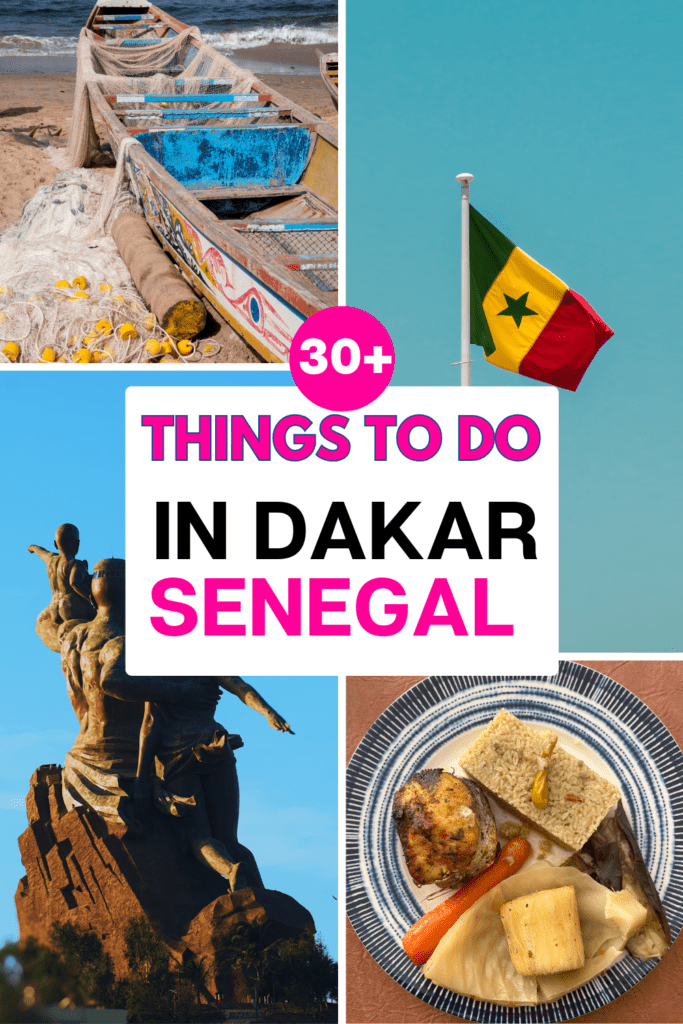
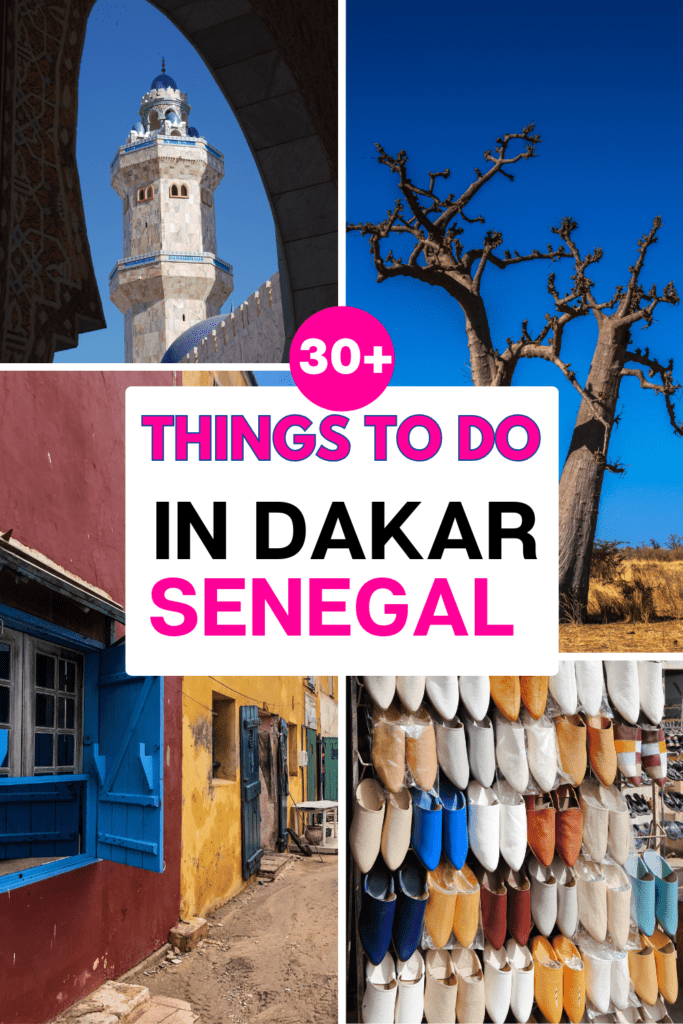
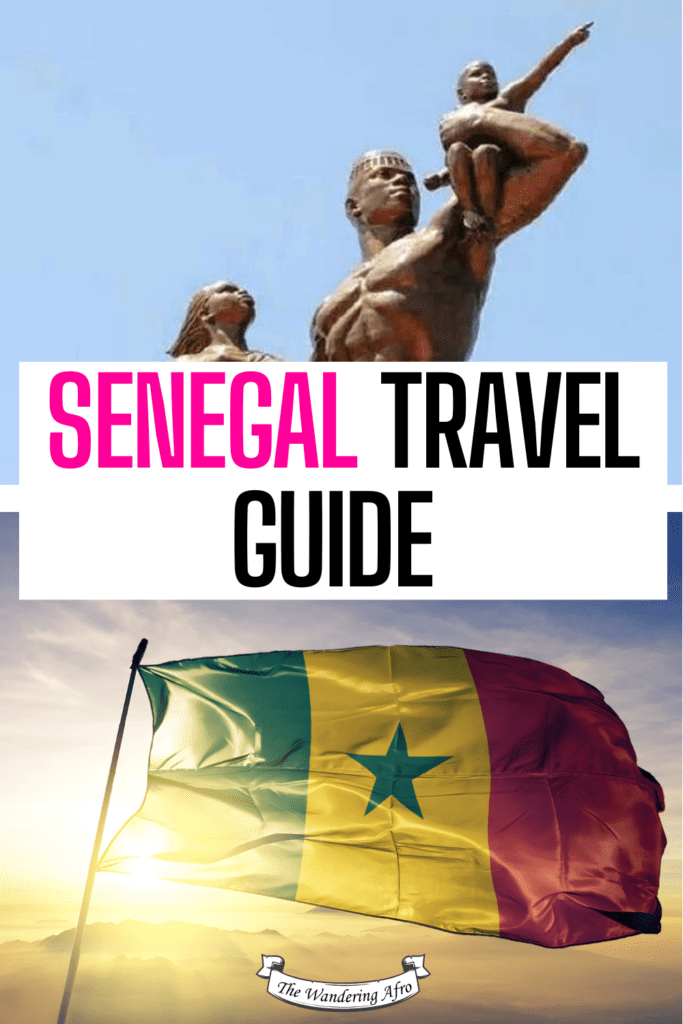
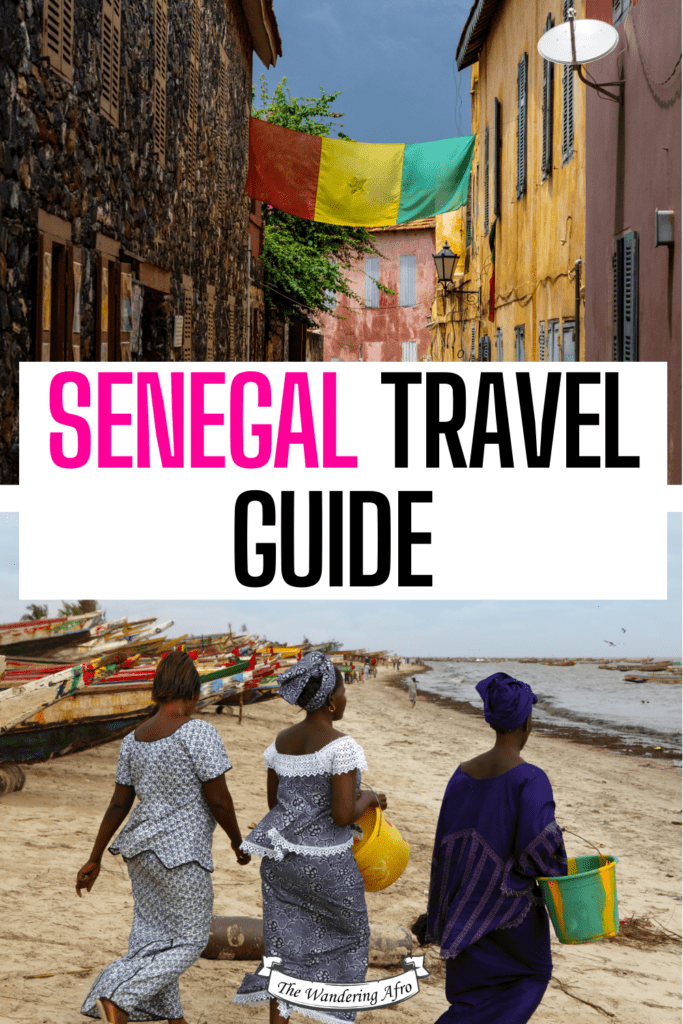
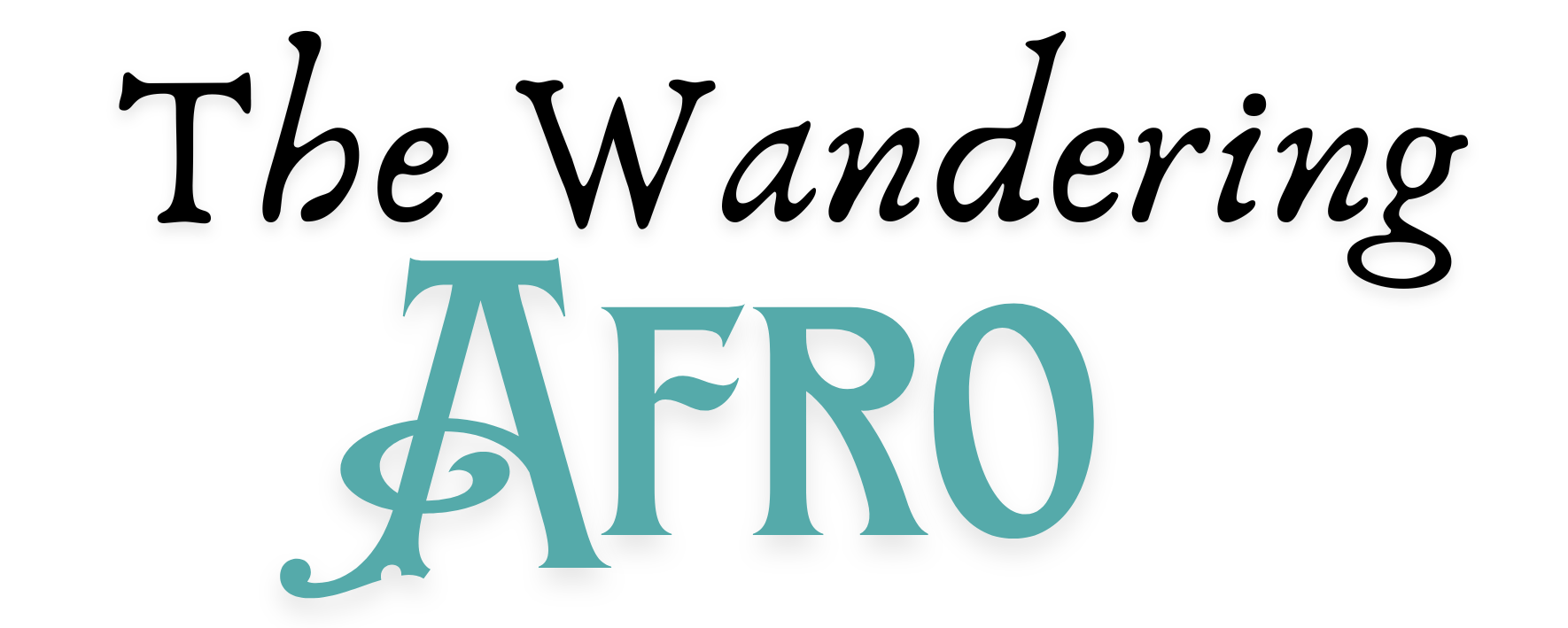

Everything in this article is more or less accurate but the Air Senegal bit is 💯 spot on. Seriously THE WORST airline. Are they still in business? Horrible.
Btw, Goree Island is also worth a visit. 🙂